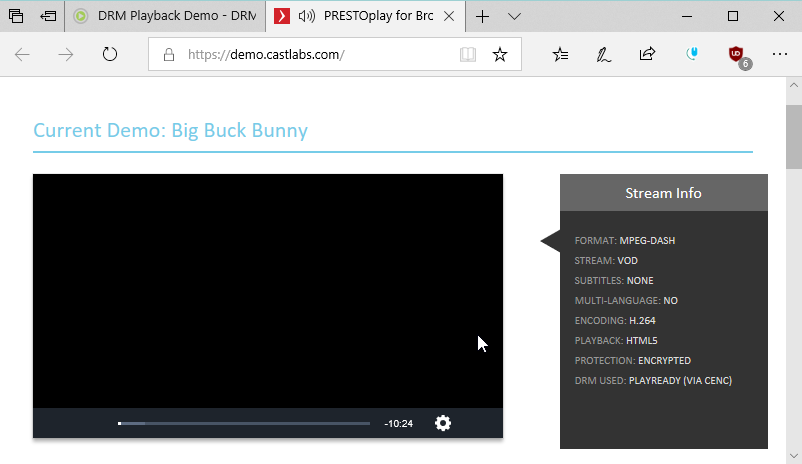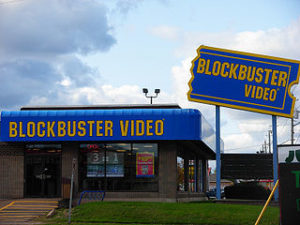DRM, digital rights management, is the term used to describe attempts to control the use and ownership of digital media post-purchase. I think that this is a pretty poor practice, and will detail some reasons why.

Homer’s assertion is not necessarily true when it comes to Digital though.
DRM: Deliberately Risking Media
DRM comes in many forms, but the ultimate aim is to control how you consume your media after your purchase is complete. It can be applied in many ways to any digital format, and very often you, as a consumer, have no choice but to go along with it if you want to consume digital media legally.
It can affect different media forms in different ways, and there are some common themes that run throughout.
Purchasing Licenses, not Products
One of the biggest problems I see when it comes to digital media versus physical media is that online stores will attempt to sell you licenses to access certain content. This is opposed to the physical world, where you would by an actual item that you would then own.
If physical product is recalled, choice is up to owner to do that. DRM allows for company to just kill off a product whenever they see fit. Owners of IPs should of course have the right to control their intellectual property, but the ability to render useless the content that people have rightfully purchased from them goes too far. Amazon has been known to do this – cancel an account and render content, like purchased eBooks, inaccessible.
After your purchase something, it really should be yours, and not tied to terms of service of wherever you bought it from. Fair enough if there was some kind of warranty, but if you’re just buying a digital media file, there’s nothing that should be attached. If there is, it leads to so many other problems. One such problem is:
Vendor Lock-In
In the physical world, certain stores can get “exclusive rights” to sell certain bits of media, for example books. In the digital world, sites are of course allowed to get exclusives, and can sell things exclusively. In any case, exclusives aren’t that bad, because you can still use the goods you buy however you want after the sale is completed.
Some services use DRM in a manner that goes much further than this – after sale exclusivity. Using the examples of books once again, certain stores will sell digital copies that can only be read in certain restrictive environments – often owned by the store that sold you the digital files.

If you purchase digital books from amazon, for example, it is very tricky to download a copy in order to use it with an e-reader other than the Amazon Kindle. You need to download it through a certified program, and crack the DRM yourself. Though doing that likely breaches the terms of use, so it’s not an excellent position to be in.
Amazon are not the only offender. Hive, an online UK book store sells content where DRM is set by the publisher. It states that the reverse of the above is true, that “the majority of eReaders will work with our eBooks. The notable exception is the Amazon Kindle.”. This site also sells books that require the use of Adobe’s Digital Editions software in order to read them, and if your device doesn’t support that, too bad. I don’t think I need to mention how bad the black box software Adobe Flash Player got, and why requiring people to download such tools just to view content is a bad idea.
If you buy media, you really ought to be able to view it however you want. Vendors ought to take this to heart and not force people to buy goods in restricted formats.
HTML5 Encrypted Media
With regards to DRM protected content on the web in HTML (a supposedly open format), there is a different sort of vendor lock in. In order to be able to play back this content users must install some kind of black box, even into supposedly open softwares like Chromium and Firefox.
Chrome develops its own system, which it does not make available for bundling with other chromium browsers, such as vivaldi. Firefox relied on a tool developed by Adobe Primetime CDM, but is now beholden to Google’s solution
Playability Impact in Games
Many video game publishers will sell games that have ridiculous levels of DRM in their games. This can range from the simple: checking an activation code against a server at the games install; to the ridiculous: hosting the whole game code in a special virtual execution environment.
These kinds of behaviours have a very detrimental effect on the game itself. Games are already some of the most resource-intensive applications that are used on computers, and any overhead in terms of the resources used by DRM measures will impact the performance of a game, and therefore the enjoyment.
Some DRM measures used in games check activation rights against a special DRM server every time the game is started, and even while the game is running. This is a terrible idea as it prevents players from even running the game when their computer is offline. And even if they are online, with spotty wireless connections where you can’t guarantee 100% uptime, a player could still be kicked out of their game:
The #sonicmaniapc offline play bug has now been patched. Thanks for your patience and let us know if you experience any further problems.
— SEGA Europe (@SEGA_Europe) August 30, 2017
In the past, some DRM measures were known to only permit a certain number of activations. If you had to re-install the game too many times, you wouldn’t be able to play it again. Regardless of whether you still had the game disc that you paid for.
Once you buy a game, you should be able to play it. If you can’t play the game you bought, then why bother buying it in the first place? Games developers should always aim to optimise their software as much as possible, and including DRM components runs counter to this.
Abandoned Servers
If a DRM measure requires contacting a server on the internet to verify if a purchase is legitimate, there is no guarantee that this server will always be available.
If a business, or whoever happens to control the intellectual property and DRM at that time, decides they’re losing money on keeping this server up, they can turn it off at a moments notice, leaving customers in the lurch.

This can happen with malicious intent, but also through inaction. If a company goes out of business, they probably won’t be able to maintain the online server that some DRM components may require to function.
This frequently happens with video games. Occasionally, a company has the sense to patch their content to allow third party servers. Increasingly infrequently these days game developers may release server software for use by the general audience. By and large, companies don’t do this. Games simply shut down, some even with perfectly good offline components, without a care for any of the customers who legitimately purchased the game.
There are ways around emulating DRM and other online component servers, but it’s not easy, and I don’t think should be a requirement.
Digital content doesn’t degrade. That’s one of its biggest positives. It’s completely negated though if a random server that a file doesn’t really need goes down in a few years time.
A consideration for any developer or publisher that requires a server would be to patch out this requirement in anticipation of server shutdown, or company liquidation. Alternatively, to make the server software itself available to paying customers.
Adaptation & Modification Prevention
Consider the case where you wished to adapt some media to match your personal preference.
Subtitling
As an example, to add subtitles. If the media could only be played back in a special viewer, you wouldn’t be able to attach an external subtitle file to it. VLC media player could do it for you, but only if the content you view is in a format readable outside of the DRM measure.
Considering old black box systems for video playback, for example the old Flash Player. If I wished to modify the appearance of such a video player (e.g. to change subtitle font) – I would be fresh out of luck. More modern web playback components that make content visible by open formats like HTML would allow me to easily change this via. CSS.
Modern playback methods are not at all perfect though:
Critical Appraisal
If I wanted to write a blog post about a film, and I wanted to take some screenshots to illustrate my point, as is allowed under the doctrine of Fair Use, DRM would prevent his. As far as DRM is concerned, any and all sharing of protected media is an illegitimate exercise. You can try this yourself – See what happens when you try to take a screenshot of the various videos when they play in an app that uses the Windows 10 Media Playback Component, such as Microsoft Edge. The video is removed completely from the screenshot:

Modding
Mods are an important part of Video Game culture, and indeed game culture itself. As long as games have existed people have taken them, adapted the rules, added their own content. In the advent of the digital market though, and the use of DRM, any game with such measures included in them would be incredibly difficult to modify.
Pirated Media is a better experience
That’s not exactly the outcome you would want your media to be a success. Considering that the whole purpose of DRM is to prevent piracy, it seems a bit of a failure if all it does is make the illegal alternative better and easier.

Digital media offers accessible content to all. It should be easy to obtain. Pay, Download and View. I won’t deny that there will always be a few in society to believe themselves to be above the concept of paying for something someone has put work and effort into. For everyone else, though, the Pay, Download, View process ought to be as simple as possible. When DRM gets in the way though, enough overhead is added to the “view” part, and customers are treated with great suspicion, that piracy becomes that much more attractive.
Content Distributors could combat piracy by offering content in as many formats as possible, without DRM restrictions, and supporting as many payment models as possible (including anonymous cash-like methods).
Copy Protection is Never Guaranteed
Cracking, the action of removing DRM from media, while not always trivial, while often difficult, is never impossible to do. It will always be possible to do in any media where there isn’t a direct online component at the centrepiece (i.e. if the media isn’t dynamically generated by a server).
- A Movie? You need to see and hear it at the end of the day. It can be seen by a camera.
- An eBook? You need to see the text to read it. It can be transcribed.
- A Game? The code in some capacity needs to run on your machine. It can be reverse engineered and copied.
Considering this, I think that the whole endeavour is an exercise in futility. It treats people who go along with the “legal” way with disrespect, and doesn’t at all hamper those who wish to use other means to get content.
Reasonable uses of DRM
I would be remiss if I didn’t state the other side of the argument.
Most of it surrounds large companies and their thought process behind preventing people from doing whatever they want with what they buy – I do believe those companies would simply take money and not actually give you any content if they thought they could get away with it.
Those specific entities aside, some reasonable use cases could exist:
Allowing Resale

If you could guarantee copy prevention and scarcity of digital files through DRM, which-as stated in a previous section-you cannot, I could envisage a digital economy much like the physical counterpart where media can be re-sold to others through second hand stores.
However, I don’t know of any digital service that currently offers this, so it’s a purely hypothetical thought. I also don’t see distributors lining up to support this, as they would lose money to third party vendors. And digital media doesn’t degrade in the same way physical media doe,s so resale would always be at 100% value.
Anti-Cheating Measures in Competitive Games

Some games have a very large competitive following. Especially in the growing land of eSports. In these cases I can definitely envisage why it would be important to have a form of DRM that prevents cheating. If players could cheat then it undermines the whole exercise.
That is not to say that it should be forced on everyone though. It might be tricky, but I could see games coming in both flavours:
- The “Professional” version which has the necessary DRM to prevent cheating that is used in a competitive environment
- A more relaxed version of the game, which could allow for customised servers and modding, which of course would not be compatible with a competitive environment.
Renting & Streaming
I mentioned above the great pity that many purchases of digital content these days are in fact simply purchases of licenses of the content. That’s a nice piece of legal trickery which I feel dirties the concept of licensing.

The physical world has a media rental industry based on the idea of sharing licenses to access content without owning, iconified in the old VHS rental store (or DVD, depending on how old you are). In a similar manner, you can indeed rent digital content for a short period of time. In this instance, you are not actually buying content but a license. Similarly, when using a streaming service, you’re paying a license fee to access a private library.
And if content is simply delivered via a license, through a pre-agreed endpoint, I think the argument for including DRM measures during content playback is somewhat stronger – Vendor lock in is not an issue, and as you don’t own anything it is reasonable to want to complete a basic check with a server that you are actually keeping up with payments to the effect of the license.
Though, in many cases DRM in this instance still goes too far – The above example of content screenshots for example is prevented in the windows 10 app for Netflix. Many DRM-enabled rental sites like amazon require “black boxes” to be installed in the browser in order to stream the content that is rented.
Music and DRM
As a final nail in the coffin for the concept of DRM, consider the music industry. It spent so long fighting the idea of digital content (to the extent of including malware on its CDs), even at times claiming that MP3 would be the death of the industry, but when the big players finally embraced DRM-free music downloads, what happened?

Companies started making media players that worked with interchangeable formats, music could be downloaded from stores and then users could do whatever they wanted with it. Put it on a Music player from the vendor where you bought it? Sure. But if a user wanted to burn it onto a CD to play in their car, there was nothing to stop them.
The music industry thrived when it started embracing DRM-free media, and it hasn’t looked back. That should be evidence enough for all the other players out there.
Homer’s Assertion
“Money can be exchanged for goods and services”
In the current climate where DRM is commonplace, this is not quite true. Money can be exchanged for digital services when and if they work on your devices. Content publishers and distributors can impose whatever rules they want on customers, even after purchase is complete, and in many cases there is very little anyone can do about it.
Money can be exchanged for the right to access certain goods, pursuant to the whims of the person who actually owns said goods, which is most certainly not you. Oh, the wonders of the digital age.


Good post, I have to say and I totally have to agree that DRM is something pretty annoying in most cases and the legit cases certainly are legit.